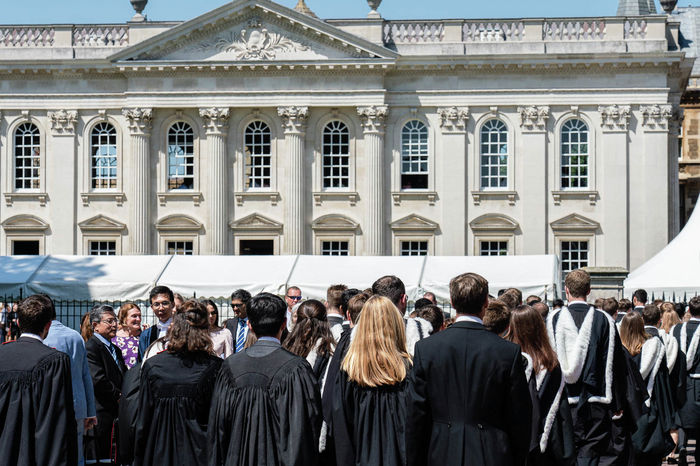Fewer places at top universities for wealthier applicants, study finds
New data shows that leading universities are admitting fewer students from wealthy backgrounds

A new study from the Office for Students (OfS) has shown that the UK’s top universities are admitting fewer students from wealthy backgrounds whilst offering places to more Black students.
The data divides students into quintiles based on the deprivation of the areas they grew up in, and has shown that Cambridge’s admission of students from the richest quintile decreased from 41.2% to 36.7% in 2019-2020. Admission of students from the most deprived quintile, meanwhile, increased from 4.9 to 6.6 per cent from 2018-2019.
Cambridge’s admissions have also made progress in the area of racial diversity: 3.6% of students admitted were Black, compared to 2.4 per cent in 2018-2019. White students now make up 72.2% of the students admitted, down from 76%.
Oxford admitted 37.4% of its 2019-2020 entrants from the wealthiest quintile, down from the 2018-2019’s 39.6%. Similar increases were also observed in the area of racial diversity, with 3.4% of students admitted being Black compared to the previous year’s 2.8%.
However, although other leading universities also admitted more students from the most deprived quintile, not all universities saw changes in their admission of non-white students.
Exeter’s proportion of Black students decreased from 1.6 per cent to 1.2 per cent.
Polar4, a measure used by OfS to analyse numbers of students coming from areas without high levels of progression to university, shows an increased gap across all UK universities between admission of the richest and poorest students, from 29.8% to 29.9%.
However, this gap decreased slightly at highly selective universities such as Oxbridge, Durham and Exeter from 19.5 to 19.2 percentage points.
The gap between rich and poor students who do not complete their courses has widened from 4.3 to 4.5 percentage points, and white students are more likely than Black students to obtain a first or a 2:1 in their degrees.
The OfS have stated they want to eliminate this gap in attainment by 2025, and close the absolute gap by 2030.
OfS’s participation director Chris Millward stated that although progress has been made, “there is still more much to do here and the cumulative efforts of universities and colleges through their access and participation plans promise much stronger progress in the coming years.”
Cambridge has developed many of its own access and participation schemes in recent months to be conducted online in response to Covid-19. New plans include Trinity College’s access schemes supporting black students in Year 10 at state schools, mentoring for Black Year 12 students, and a general sixth form mentoring scheme for students at state schools.
Gonville and Caius College, meanwhile, has launched a Year 11 access program for students from the College’s link areas.
In the recent Higher Education Policy Institute (HEPI) Social Mobility Index, Cambridge ranked 22nd out of the UK’s universities for its contribution to the social mobility of its graduates. This was a lower ranking than its position of 15th in 2017-2018.
This comes as it was announced this week that state sixth form college Brampton Manor received more Oxbridge offers than Eton College for the first time, with 55 conditional offers compared to Eton’s 48.
 Comment / Cambridge’s tourism risks commodifying students18 April 2025
Comment / Cambridge’s tourism risks commodifying students18 April 2025 News / Cambridge student numbers fall amid nationwide decline14 April 2025
News / Cambridge student numbers fall amid nationwide decline14 April 2025 News / Greenwich House occupiers miss deadline to respond to University legal action15 April 2025
News / Greenwich House occupiers miss deadline to respond to University legal action15 April 2025 Comment / The Cambridge workload prioritises quantity over quality 16 April 2025
Comment / The Cambridge workload prioritises quantity over quality 16 April 2025 Sport / Cambridge celebrate clean sweep at Boat Race 202514 April 2025
Sport / Cambridge celebrate clean sweep at Boat Race 202514 April 2025





